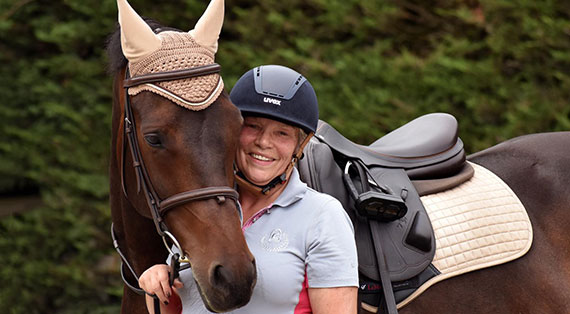Why Can’t You Stick With Them?
The start of a new year brings with it a sense of renewed hope and the opportunity for self-improvement. Many of us set New Year’s resolutions, intending to make positive changes in our lives. However, as the months go by, these resolutions often fade away, leaving us wondering why we can’t stick with them. In this blog post, we delve into the psychology behind New Year’s resolutions, exploring the role of our subconscious mind, the prefrontal cortex, and the elusive nature of motivation.
The Power of New Year’s Resolutions
New Year’s resolutions hold immense power in our minds. They symbolize a fresh start and the chance to break free from old habits. We set these resolutions with the best intentions, fuelled by the desire for personal growth and happiness. However, the journey from intention to action is not always straightforward.
The Role of the Subconscious Mind
Our subconscious mind plays a crucial role in our ability to stick with New Year’s resolutions. Conscious goals are set by our conscious mind, but habits and responses are determined by our subconscious. We tend to struggle to maintain our resolutions throughout the year due to old patterns that are deeply ingrained in our subconscious. So if there is a mismatch between what your conscious mind suggests and what the subconscious mind can believe in and deliver by way of change, it is hard for your brain to fully get behind this new goal.
The Prefrontal Cortex and Self-Control
The conscious mind, or prefrontal cortex is the rational and decision-making part of our brain. It comes into play when it comes to New Year’s resolutions. It helps us set goals and make plans. However, the prefrontal cortex can only hold a limited number of processes at one time. It is easily overwhelmed, especially when faced with multiple resolutions or complex lifestyle changes. This cognitive overload weakens our ability to maintain self-control and stick with our resolutions over time. If the prefrontal cortex can rely on the subconscious mind to back it up, we are much more likely to stick with our New Year’s resolutions.
The Elusive Nature of Motivation
Motivation, the driving force behind our actions, can be elusive when it comes to New Year’s resolutions. Initially, the excitement and enthusiasm of the new year propel us forward. But as time passes, motivation, which leans to the new and exciting tends to wane, and we find ourselves struggling to stay on track. Understanding the factors that influence motivation can help us develop strategies to sustain it throughout the year. Essentially, success breeds motivation so when we have even a small success, it motivates us to carry on.
So how do we make New Year’s resolutions and stick with them?
Imagine…..

One thing you can try, is to picture yourself having achieved your goal. For instance, let’s imagine you said you want to be skinny and fit. Picture that. Imagine yourself, what are you doing? What are you feeling? Now, most importantly does that still feel like you? Because if it doesn’t, crucially, the conscious part of your mind, the prefrontal cortex, the part that you know as you, is going to have a hard time committing to this vision of a stranger, and similarly, your subconscious mind is going to find it hard to deliver the necessary changes to thoughts and behaviours. Inevitably this will be a New Year’s resolution you can’t stick with.
Conversely, if that image feels like the real you, then see it often. Imagine it as you drift off to sleep, make it real, by seeing yourself in different scenarios as this new you. By imagining yourself in this new form, your subconscious mind will feel as if this transformation is already underway, it will feel like a win, it will produce the brain chemicals necessary to keep you motivated to succeed and stick with it.
The list of 50
This was a technique given to me by one of my heroes, Karl Greenwood (www.horsebackcombat.co.uk)
Write down a list of 50, no less, things you want. The first 10 or so will be the big house, the fast car the lottery win types of things. The things your conscious brain says you should want. Interestingly, the more you struggle, the more the ideas that come up will be smaller, but heartfelt. Your subconscious brain is letting you know some things that you need to make you happy. One year number 42 on my list was having fresh flowers in the house all the time. And I have done ever since. And every time I see them I smile and remember why I have them. They make me happy. Incidentally, I also left a very lucrative, but stressful career as part of this process. It was there at number 15. And I couldn’t take my eyes off it. In the midst of everything else it shone out like a beacon.
In conclusion…
New Year’s resolutions can be both empowering and challenging. The interplay between our subconscious mind, the prefrontal cortex, and motivation all contribute to our ability to stick with them. By recognizing these psychological factors and implementing strategies that address them, we can increase our chances of successfully achieving our resolutions. So, as you embark on your journey towards self-improvement this year, remember to be patient, kind to yourself, and persistent in your efforts. Happy resolution-keeping!
If you need help finding the real you, or the motivation to change from an unhappy state, I can help. Email me at lynn.mildner@KLHClinic.co.uk or make an appointment via my website at https://klhclinic.co.uk/




